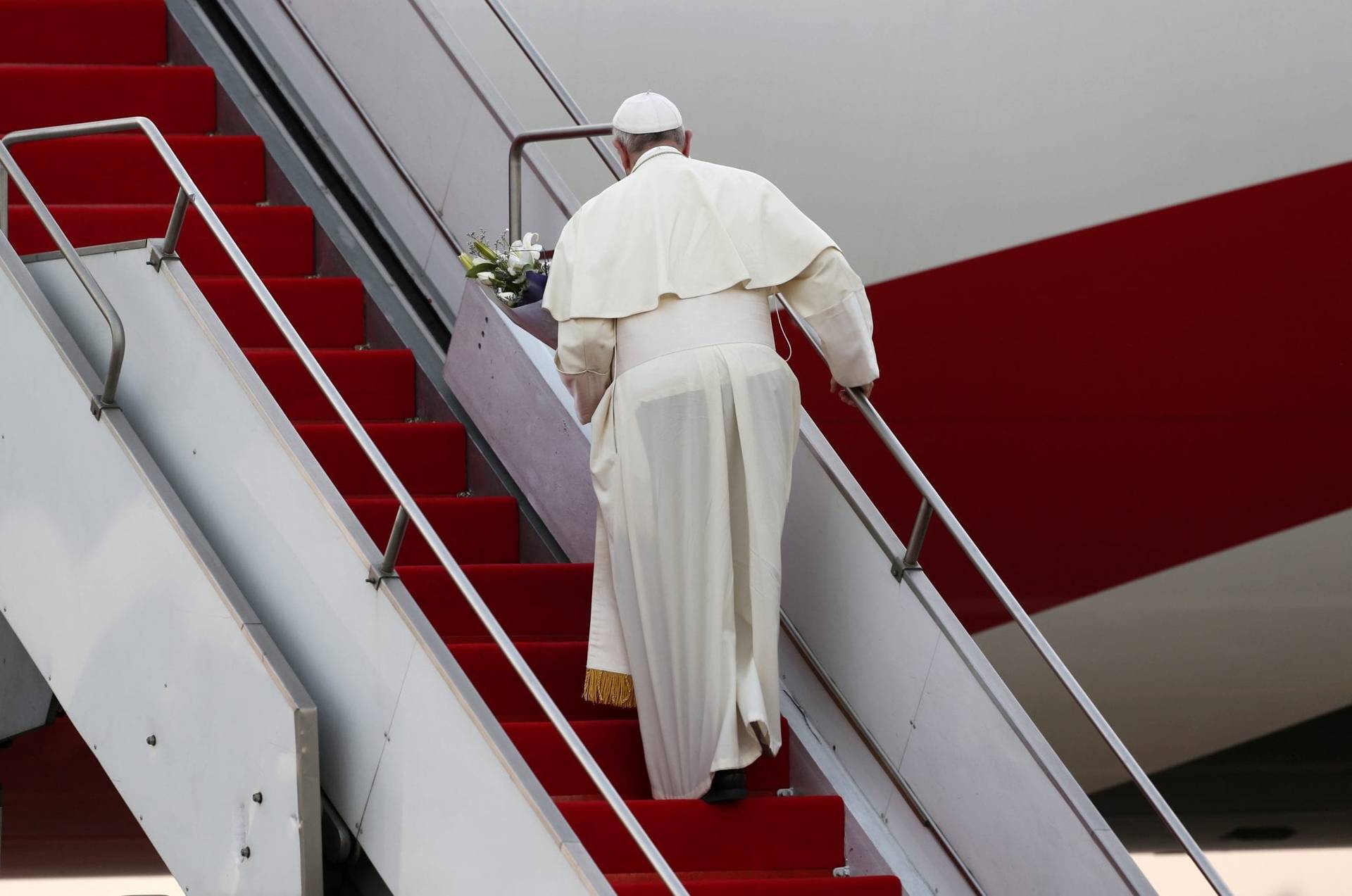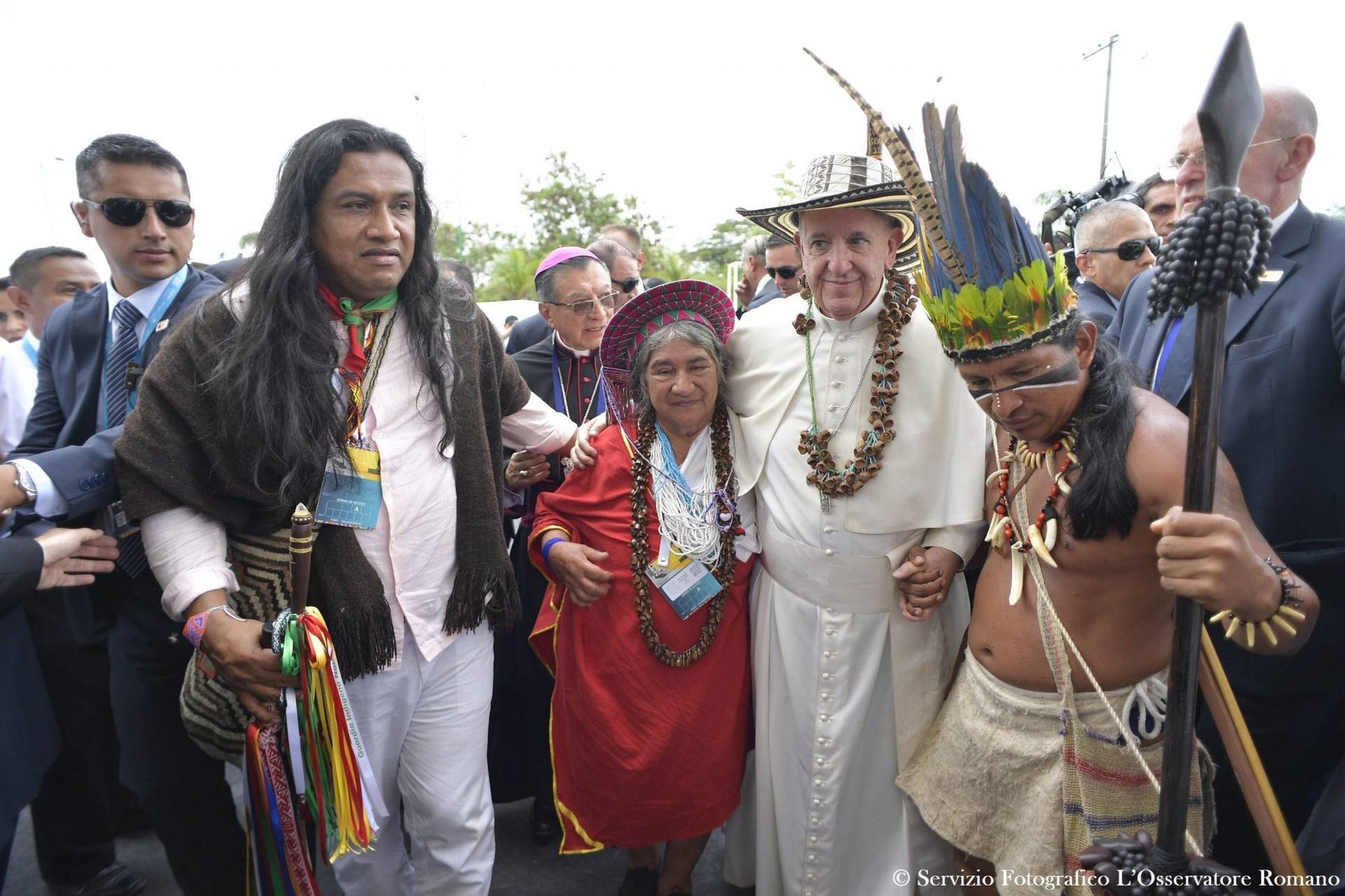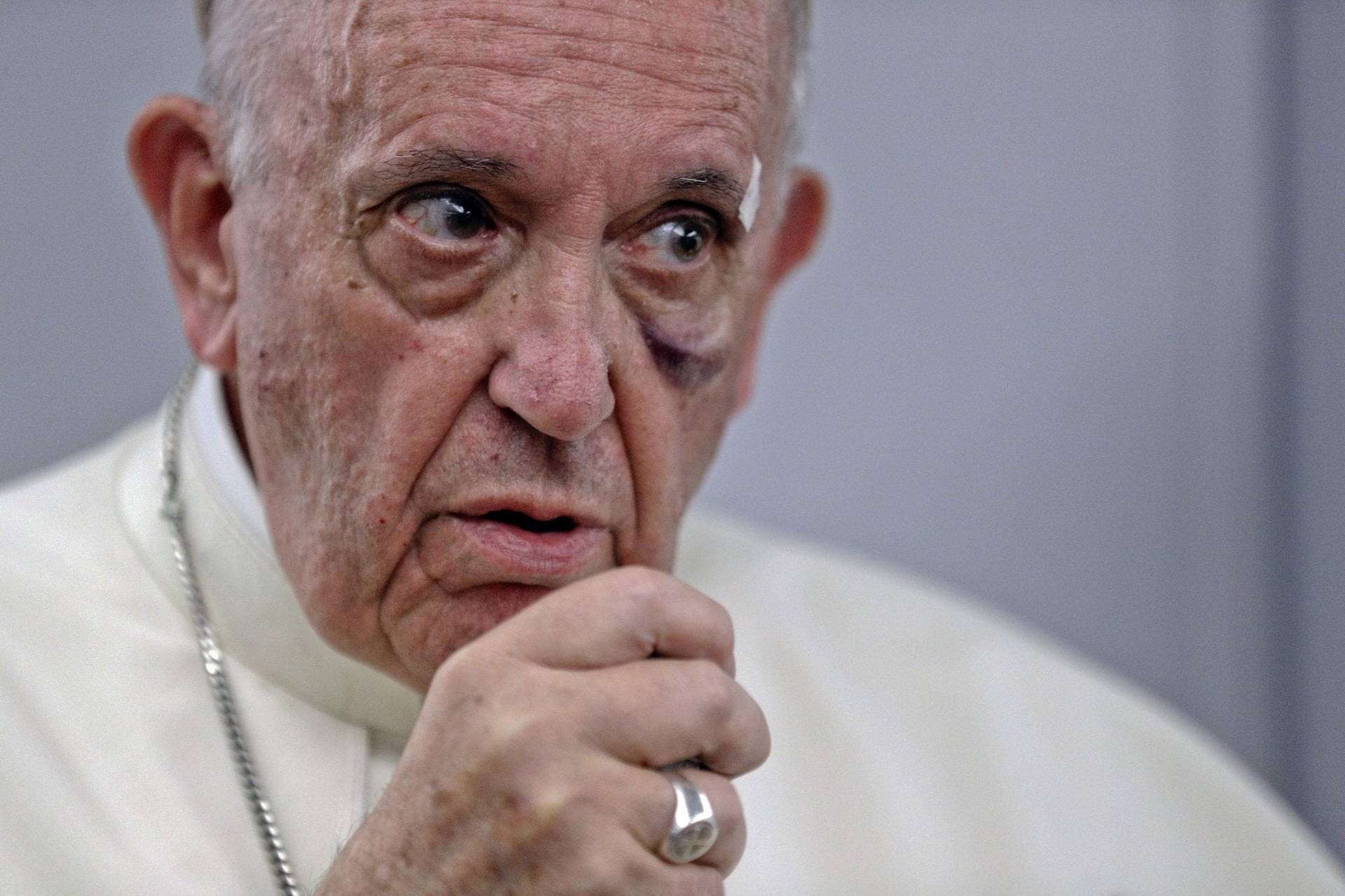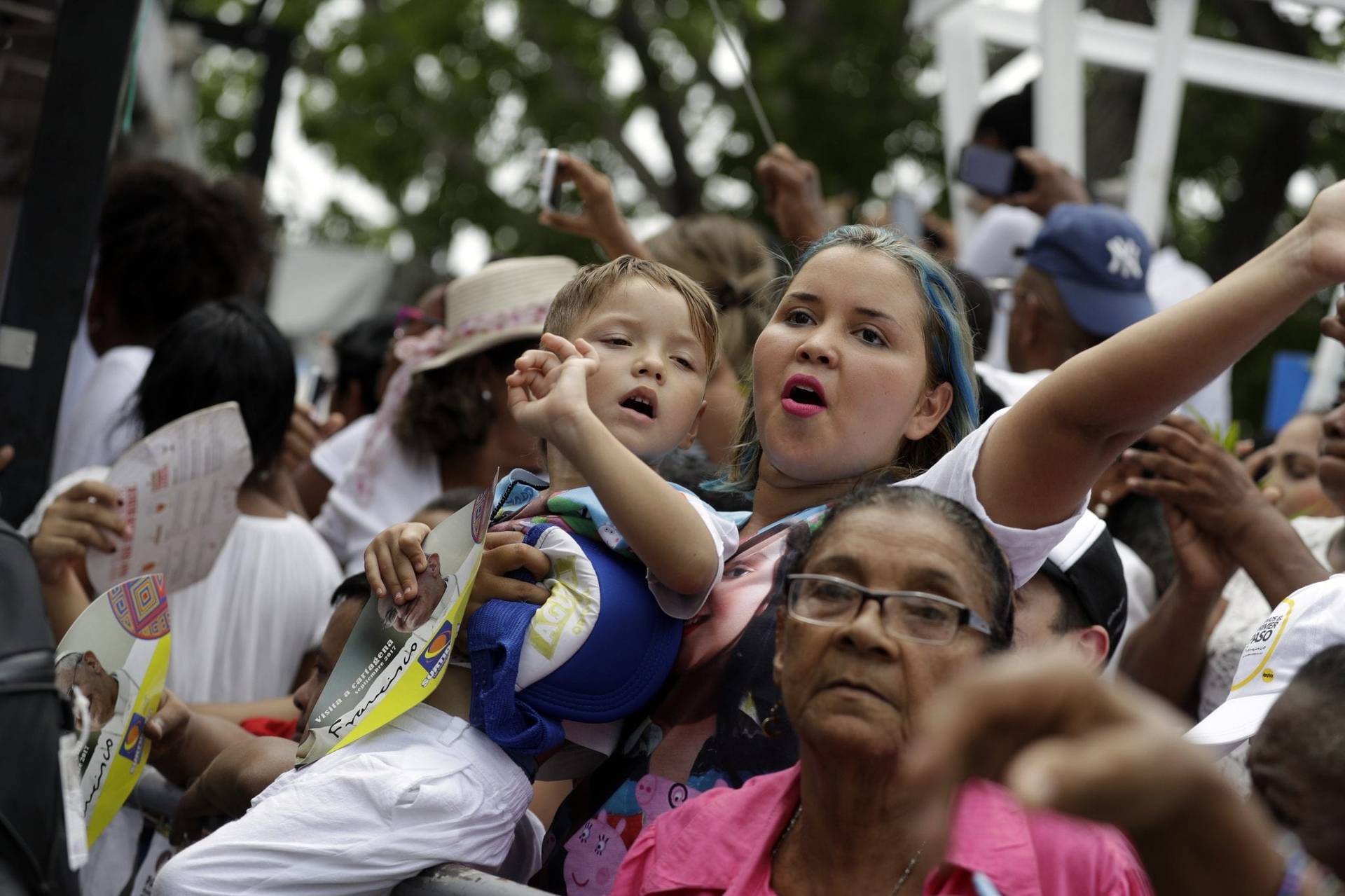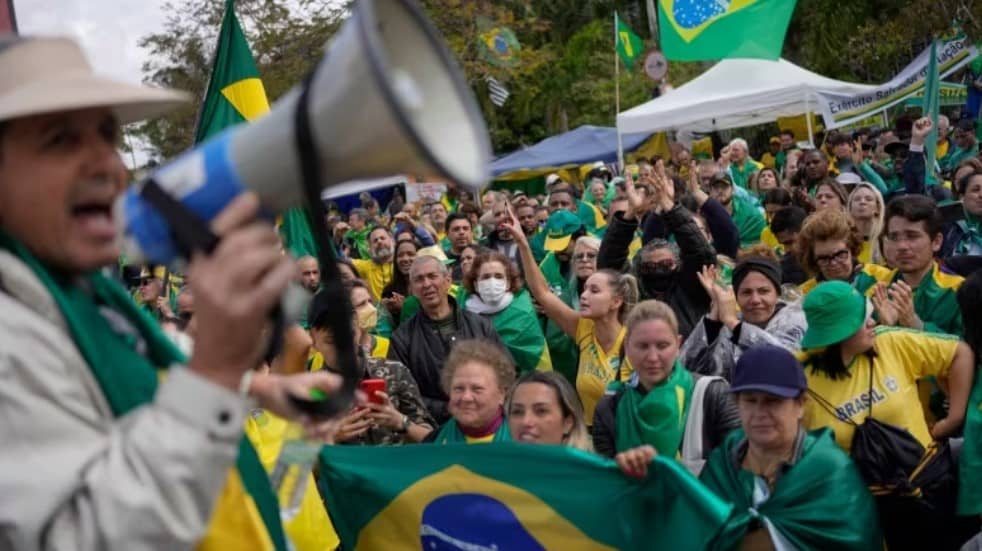CARTAGENA, Colombia— After delivering more than 10 speeches, visiting an orphanage, leading prayers of reconciliation in a country devastated by conflict, celebrating Masses before vast crowds, and meeting politicians, social elites, and bishops alike, Pope Francis closed his Sept. 6-11 visit to Colombia surrounded by those he loves the most: The poorest of the poor, including young women who are recovering victims of human trafficking.
Among other things, Francis told them that God teaches through the example of the humble and discarded. He also vigorously lamented that today, as in the 1500s, human beings are being traded as slaves.
Speaking at his traditional Sunday Angelus address, which he usually delivers from a window overlooking Rome’s St. Peter’s Square, the pope focused on Our Lady of Chiquinquirá and Jesuit St. Peter Claver, both patrons of Colombia.
According to tradition, it was a humble woman by the name of Maria Ramos who first venerated the famous Colombian image of the Virgin, which appeared on a piece of discarded cloth.
“She had the courage and faith to put this blurred and torn fabric in a special place, restoring its lost dignity,” Francis said.
The image was brought to Colombia from Spain in 1560, and was painted in tempera over cotton woven by the Indians. In time, humidity, air and sun damaged the painting to the point that the image was no longer visible. In 1577, it was moved to Chiquinquirá, and left abandoned in a room that had formerly been a family oratory.
Eight years later, Ramos found the cloth, and restored the chapel around it. Tradition has it that a miraculous restoration of the painting occurred on Friday, December 26, 1586, which gradually closed the scratches and holes in the cloth, overlaying them with color and light. Two indigenous people, Isabel and her son Miguel, were the first to see the transformed fabric.
According to Francis, Ramos is a model for those who “seek to restore the dignity of our brothers and sisters lost through the pain of life’s wounds, to restore the dignity of those who are excluded.”
But above all, the pontiff said, she’s a model for those who persevere in their prayer so that those who are suffering “may regain the splendor of the children of God which they have been robbed of.”
God, the pope said, teaches through those who are humble and not valued. Isabel and Miguel, the pope said, represent the poor and humble ones to whom the mystery of God’s love “is revealed most clearly.”
Cartagena is a coastal city, once a gateway for the slave trade in the New World.
The Spanish-born Jesuit Claver, who died in 1654, is honored throughout Latin America. After his ordination, he wanted to be known as the “slave of the blacks forever.”
According to Francis, the saint witnessed the “responsibility and care that we should have for one another.”
Claver, the pope said in his remarks before praying the Angelus from the atrium of the church dedicated to the saint, and where he’s buried, faced opposition from those who feared that his ministry would undermine the lucrative slave trade.
Though Francis didn’t make the connection, many of Latin America’s modern-day martyrs are killed for that same reason: persuading the faithful against joining the guerrilla groups in Colombia when they were active, as was the case of Bishop Jesús Emilio Jaramillo Monsalve, murdered by the National Liberation Army, whom the pope declared blessed on Thursday.
The pope also denounced the modern-day slave trade, something he’s done many times before, speaking against human trafficking, the world’s third most profitable industry, after arms and drugs. The low end estimations put the number of victims at 21 million.
“Here in Colombia, and in the world, millions of people are still being sold as slaves; they either beg for some expressions of humanity, moments of tenderness, or they flee by sea or land because they have lost everything, primarily their dignity and their rights,” he said.
Before the Angelus, Francis paid a visit to one of Cartagena’s poorest neighborhoods in his Popemobile, where he blessed the foundation stone for a house for the homeless at the St. Francis square surrounded by hundreds of homeless and girls helped by Talitha Kum, an international network of religious women who work to fight human trafficking.
He also visited a house Talitha Kum operates here, and entered the home of Lorenza Pérez, a 77-year old community leader who has been volunteering as a cook for a neighboring community center.
RELATED: Pope suffers minor injury in Colombia reaching out to the crowd
Speaking to the national TV network ahead of the pope’s visit, she said that “a group of bishops from abroad, dressed in white” told her not to change anything in her house or the way she dresses daily, and not to be scared when the pope arrives.
“I don’t know if when the pope arrives, I’ll have the words to ask him ‘pope, give me a blessing,’” she said. “But I’m praying to the Lord for him to give me the opportunity that, when the time comes, I can, despite my knee problems, bend and kneel in front of him.”
Later on Sunday, Francis was scheduled to say Mass to hundreds of thousands in Cartagena’s port region, before heading back to Rome. On the flight back, he’s expected to give one of his traditional in-flight press conferences.







